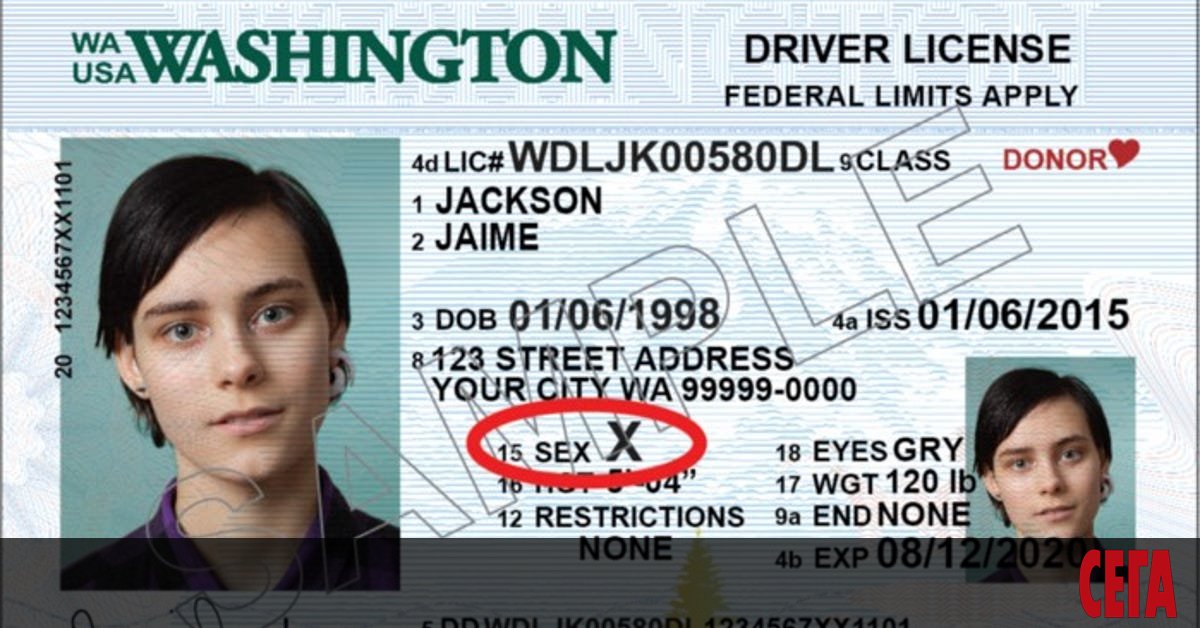Berlin – “A frog!” The little chocolate-covered part on my plate had iced eyes and pink buttercream glowed from the wide open mouth. I took a bite and raspberry sweetness filled my mouth. Thirteen years old I thought I was in heaven.
“We discovered a German restaurant yesterday.” My mother stroked my new stepfather’s head. We all liked to touch Detlev’s brush cut because it felt like a freshly mown lawn. The “crew cut” was the most American thing about this German man who brought us from Berlin to Minnesota, USA, a year ago. “There was even real bread,” said my mother. Then she sighed. “Everything was so familiar, I felt like I was in Berlin.”
From then on, the “Lincoln Del” in Minneapolis was part of our lives. Whenever my mother was very homesick, we went to eat there. It was a simple restaurant, with small tables close together in a large rectangular room. Cheese cake and chocolate cake, cream pie and strawberry-cream shortcake stood in an illuminated glass showcase, so you had to think about dessert right away.
Childhood in divided Berlin
The laminated menus were almost half a meter high. We always looked for the familiar: “cabbage rolls”, which were known to us as cabbage rolls; “Latkes”, which we called potato pancakes; Chicken soup with matzo balls that tasted like semolina dumplings. The Lincoln Del was considered the best Jewish deli in town. But for us it was a German restaurant.
I was born in West Berlin seven years after World War II. Not a single member of my family had been in the NSDAP, the men had not fought on the front. The bombing raids had turned Berlin into a field of ruins, but my relatives were spared. Two great aunts had to flee to England with their Jewish husbands. But there weren’t any resistance fighters in my family either. Nobody had risked their life to hide Jews or Communists. My parents were scared and traumatized teenagers when the Allies defeated Hitler. After the war, the relatives didn’t say much. Only when they had a chat for coffee did they keep talking about the hunger they had suffered.
My childhood Berlin was a divided city with ruins, disabled men and occupation soldiers who spoke English, French or Russian. It was the time of feverish reconstruction. Everyone seemed to agree that hard work was a future prospect and the economic miracle was a new beginning. Berlin was also a city without Jews – but that was not talked about. I often had an oppressive feeling that there are ghosts among us.
There were unspoken and forbidden subjects. Once while leafing through a magazine in a dentist’s waiting room, I came across terrible photos: heaps of emaciated corpses, a mountain of worn shoes, hollow-cheeked men in striped clothing. I was eight or nine years old and I knew the pictures showed a concentration camp. These were the places where Jews perished. So the adults put it in a whisper, as if millions of people had been struck by lightning. I hid the magazine under the pile on the table. I didn’t want the old people in the waiting room to scold me for looking at these pictures. I didn’t dare cry.
Nobody wanted to pronounce the word “Jew”
As a child I noticed that people were uncomfortable when the word “Jew” was mentioned. For centuries it had been a stigma, a death sentence under Hitler. Occasionally in the post-war years someone would pronounce it. Then the adults cleared their throats and picked up their cigarettes. The conversation dried up because “Jude” conjured up mass murder and German guilt.
In 1964 my family and I immigrated to Minnesota. In the 1970s the word lost its horror to me there. When I was leaving the university classroom with a friend, I asked him about the man who had asked the good questions. “You know, the tall, Italian-looking guy.”
“Italian? What makes you think that? David is Jewish.“
Gregg’s answer surprised me because Jewish was still a dangerous classification for me. But I was also relieved. So it was possible to pronounce it. At least in English.
Seven years after eating my first matzo ball soup, I applied to be a waitress at Lincoln Del. I wanted to work there to finance my studies, but also because I loved food. It had allayed my homesickness. The owner hired me even though I had a German accent. I wasn’t the only non-Jewish waitress, but I was the only German.
On my first day at work I appeared in the prescribed clothing: a short black skirt and white blouse, a shiny black cocktail apron, in the large pockets of which I could stow pad, pen and tip. I wore my hair pinned up, it said on my name tag Tina. The longest serving waitress showed me the open kitchen, where it was hot, cramped and noisy. Plates clinked, the grill hissed, steam from the dishwasher mixed with the steam from the huge pot of borscht.
Behind this din was a wide corridor with shelves in which babka cakes and rugelach were lined up to cool. Next to it was a walk-in refrigerator with tubs containing creamy cake fillings: vanilla, chocolate, banana. I wasn’t the only one who voluntarily took lemons or parsley out of the refrigerator, always with a teaspoon in my apron pocket.
The only German in the Jewish deli
The guests at Lincoln Del seemed to know each other – from the synagogue, the children’s schools, the tennis club. They greeted each other profusely, patted each other on the shoulder, admired babies, snatched friends’ bills. They shouted Mazel Tov and compliments across the tables and loudly proclaimed their opinions. It seemed to me that they were continuing conversations that had started elsewhere.
It was always full. But even when it got hectic, the customers expected a few friendly sentences from us waitresses. S.chmoozing they called it and I realized it was a Yiddish word.
Once I heard a customer say to her husband, slightly indignant, “I’m sure our waitress is German.”
“But she can’t help that,” he replied. I served her Reuben sandwiches and she smiled at me. “Your accent doesn’t actually sound German at all.” She meant it as a compliment, so I thanked her.
Sometimes customers asked me which German city I came from. A silver-haired woman beamed at me when I told her that I was born in Berlin. “A wonderful place. I’ll never forget the parties and dinners. ”She looked at her companion“ We were always drinking champagne! ”She wanted to know the German word from me. “Oh yeah, champagne.” She snapped her fingers. “Back then, the champagne flowed from fountains.”
She must have lived in Berlin before Hitler. Which way had brought her to Minnesota? I did not dare to ask. I later wondered what memories made her leave me a very generous tip.
Repartee in Yiddish
Waiting at the Del resulted in a steep learning curve. I learned what a kippah is and on what occasions men wear it; that mitzvahs are good deeds and that Jewish families argue with their children over Christmas trees; that Yom Kippur is the high holiday of forgiveness. I understood that many of the expressions I used in German – Mischpoche, meschugge, Schlammassel – are Yiddish.
I couldn’t contribute anything to the conversations about Bar Mitzvahs and Seders, but instead I memorized the special preferences of the customers: a portion of kascha in the bean soup, lemon wedges with the blintzes. Some of the regulars insisted on being served by me. They asked me how things were going with my studies, whether I had seen the film “Cabaret”.
I felt comfortable in the conviviality of Lincoln Del. Was that because of the food? The lively conversations, the quick wittedness, the self-irony? Or in Yiddish? Why was the Lincoln Del so familiar to me? I hadn’t known any Jews in Berlin. But perhaps, despite the Holocaust, Jewish culture was woven into German life like threads in a carpet. Or were aspects of German and Jewish life like a matzo ball: stirred together and then cooked into a firm dumpling so that it was impossible to separate them from each other. If that was true, then the Germans had destroyed part of their own culture in the Holocaust.
On a Saturday night, Lincoln Del was, as always, crowded and loud, the smell of grilled sandwiches and cabbage rolls in the air. A customer called to me “Bubeleh, more coffee!” I lowered the knife I was about to use to cut a piece of chocolate pie. For a moment my gaze wandered through the restaurant, grazing the many people who were talking while they were eating. As if someone had turned the sound off, it suddenly went very quiet. Then I heard a voice in my head: That is Jewish life.
The life that was missing in Berlin
Thirty years after the Second World War, thousands of kilometers from Berlin, I stood in the Jewish deli and realized that Berlin and every other German city was marked by absence. The Jewish shops, restaurants, cafes, offices where life had pulsed before the Nazis came to power – they were all missing. Surely they had been as lively as the Lincoln Del. All of these facilities were “Aryanized” – attacked, looted, expropriated. Customers, guests and owners were arrested and murdered. Some were able to survive in hiding or flee.
I could hardly breathe. Very slowly I put the knife back, put the chocolate pie in the display case, and made my way through the hot kitchen. As soon as I reached the corridor, I ran down the narrow stairs. In the locker room I sat on the wooden bench and cried. At some point I blew my nose and renewed the lipstick to distract from my reddened eyes. Then I returned to the large room, served pastrami sandwiches and borscht, did my accounts, pocketed tips.
After midnight I ran home. I walked the icy streets in thick boots. During my studies I had dealt a lot with the Holocaust and knew why Jews no longer lived in Berlin. But I never imagined what the city had lost.
The author is a political scientist and journalist. She has lived in Berkeley, California, since 1975, with interruptions for longer research stays in Berlin. The Lincoln Del plays a role in their recently completed memoir, “Divided”.
This is a contribution that was submitted as part of our open source initiative. With Open Source Berliner Verlag gives freelance authors and anyone interested the opportunity to offer texts with relevance to the content and professional quality standards. Selected contributions are published and honored.
This contribution is subject to the Creative Commons license (CC BY-NC-ND 4.0). It may be freely used by the general public for non-commercial purposes, provided that the author and the Berliner Zeitung are named and that any processing is excluded.
–


